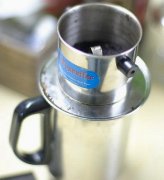Unique Chinese Coffee style Chinese Coffee Culture

Chinese Coffee Culture
According to historical records, coffee was first planted in Taiwan in 1884, which opened the prelude to the development of coffee in China. The earliest coffee cultivation in mainland China began in Yunnan, when a French missionary brought the first coffee seedlings to Binchuan County in Yunnan Province at the beginning of the 20th century. In the following nearly a hundred years, coffee was only "dotted" in the vast territory of China. However, in recent years, the development of coffee cultivation and consumption in China has attracted more and more attention of the world. Maxwell, Nestle, Colombia and other international coffee companies have set up branches or factories in China to provide better varieties and prices for the Chinese market. As a part of the western way of life, coffee has officially entered the Chinese family and life; cafes in Beijing, Shanghai, Guangzhou and other Dapo cities have sprung up with the growth of coffee culture, becoming a new consumption fashion for young people, decorated with urban customs.
In China, people like drinking coffee more and more. The "coffee culture" that follows is full of every moment of life. People are tasting coffee at home, in the office, or on various social occasions: it is gradually associated with fashion and modern life. Coffee houses everywhere have become good places for people to talk, listen to music and rest, and coffee has gradually developed into a culture. Whether it is freshly ground coffee beans or freshly brewed hot coffee, it exudes a rich aroma and makes people intoxicated. There are many ways to savor this intoxication: espresso, cappuccino, Latay, flavored coffee; they offer a variety of options for people who regularly patronize coffee shops in Beijing, Shangjiu and other big cities in China. Chinese people also gradually like to make their own coffee. Using roasted coffee beans, filter pots and filter paper to make a cup of fresh coffee also has a different taste.
As coffee is widely known as a drink with a long history, coffee is being accepted by more and more Chinese people. Some data show that China's coffee consumption is increasing year by year, and is expected to become an important coffee consumer in the world. Today, Yunnan coffee produced in China's own land, with its noble quality and low price, will promote this trend, guide this fashion, become the Chinese people's own coffee brand, and have China's own unique coffee culture.
Important Notice :
前街咖啡 FrontStreet Coffee has moved to new addredd:
FrontStreet Coffee Address: 315,Donghua East Road,GuangZhou
Tel:020 38364473
- Prev

Unique Chinese Coffee style Office Coffee Culture
Analysis of the office coffee culture of modern Chinese white-collar workers where a more decent Office, there are always two shiny coffee pots, and coffee is provided free of charge around the clock. A little more particular, there will even be a small coffee shop for employees to enjoy during the break. As a result, the jingling music of stirring coffee with a metal spoon here has turned into an enterprise.
- Next

Vietnamese coffee improved Vietnamese pot
This is the use of a modified Vietnamese pot to extract pure Vietnamese coffee beans by dripping. And the most important feature of Vietnamese coffee beans is baked with special cream, so there will be a strong tropical coffee wrapped with a strong creamy flavor. Drinking coffee is a daily habit of Vietnamese. Vietnamese cafes are very common, not high-spending places, and ordinary ones are only a few yuan RMB. Vietnam Coffee
Related
- Beginners will see the "Coffee pull flower" guide!
- What is the difference between ice blog purified milk and ordinary milk coffee?
- Why is the Philippines the largest producer of crops in Liberia?
- For coffee extraction, should the fine powder be retained?
- How does extracted espresso fill pressed powder? How much strength does it take to press the powder?
- How to make jasmine cold extract coffee? Is the jasmine + latte good?
- Will this little toy really make the coffee taste better? How does Lily Drip affect coffee extraction?
- Will the action of slapping the filter cup also affect coffee extraction?
- What's the difference between powder-to-water ratio and powder-to-liquid ratio?
- What is the Ethiopian local species? What does it have to do with Heirloom native species?

